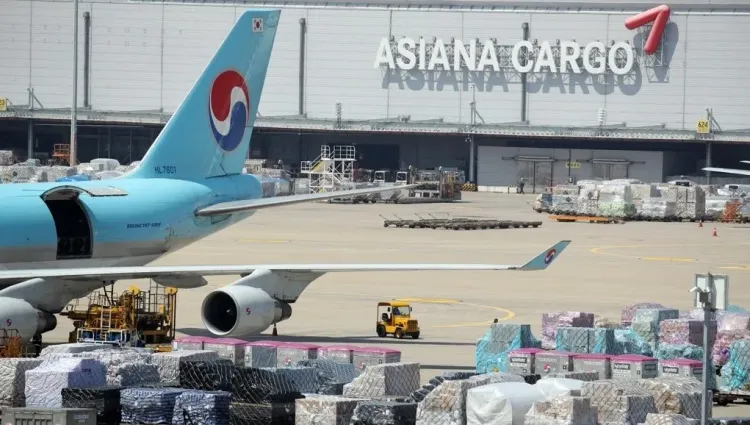Did an Asiana Flight to Tokyo Turn Back Due to Engine Trouble?

Synopsis
Key Takeaways
- An Asiana Airlines flight returned to Incheon due to a suspected engine issue.
- No injuries were reported among the passengers.
- The airline is investigating the cause of the incident.
- An alternative flight is scheduled for affected passengers.
- The Fair Trade Commission is scrutinizing a proposed merger plan.
Seoul, June 21 (NationPress) An Asiana Airlines flight headed for Tokyo made an unexpected return to Incheon, located west of Seoul, approximately one hour post-departure on Saturday after an engine issue was identified, the airline reported.
The flight OZ108, which took off for Narita International Airport from Incheon International Airport at 6:49 p.m., landed back at Incheon around 7:42 p.m. following established safety protocols, the company stated.
No injuries were reported among the 263 passengers onboard, as per Yonhap news agency.
Reports indicated that smoke emerged after a spark was noticed on one side of the engine.
Asiana Airlines is currently examining the A330-300 aircraft to ascertain the precise cause of the issue, investigating whether it was an engine malfunction or a bird strike.
The airline has plans to substitute the aircraft and facilitate an alternative flight for passengers at 4:30 a.m. on Sunday, taking into account the nighttime landing and takeoff restrictions at Narita.
In related news, South Korea's antitrust authority revealed last week that it has denied a proposed mileage integration strategy put forth by Korean Air Lines Co. and Asiana Airlines Inc., citing a lack of adequate details and concerns regarding consumer benefits.
The Fair Trade Commission (FTC) stated that the proposal, submitted earlier the same day as part of the airlines' larger merger strategy, did not fulfill the criteria needed for a formal evaluation.
"There were deficiencies in the proposed mileage redemption compared to what Asiana Airlines offered before," noted the FTC. "Regarding the suggested mileage integration ratio and other explanations, we found the submission inadequate for a comprehensive review."
The FTC has urged Korean Air to promptly revise and enhance the proposal before resubmission.
While the regulator did not disclose specifics of the proposal, it mentioned that it is contemplating consultations with stakeholders and experts at a suitable time post-revisions.
Public interest has been directed toward the mileage integration ratio, which is a crucial aspect of the plan.
Flight miles can be accrued through actual flying or gathered via credit card transactions, hotel collaborations, and other non-flight activities.









